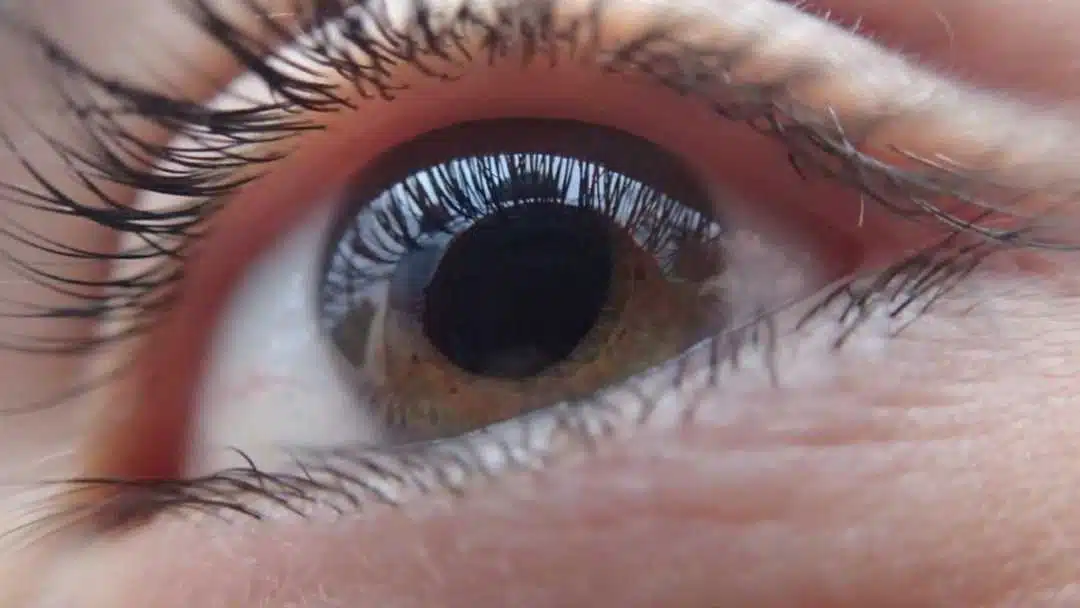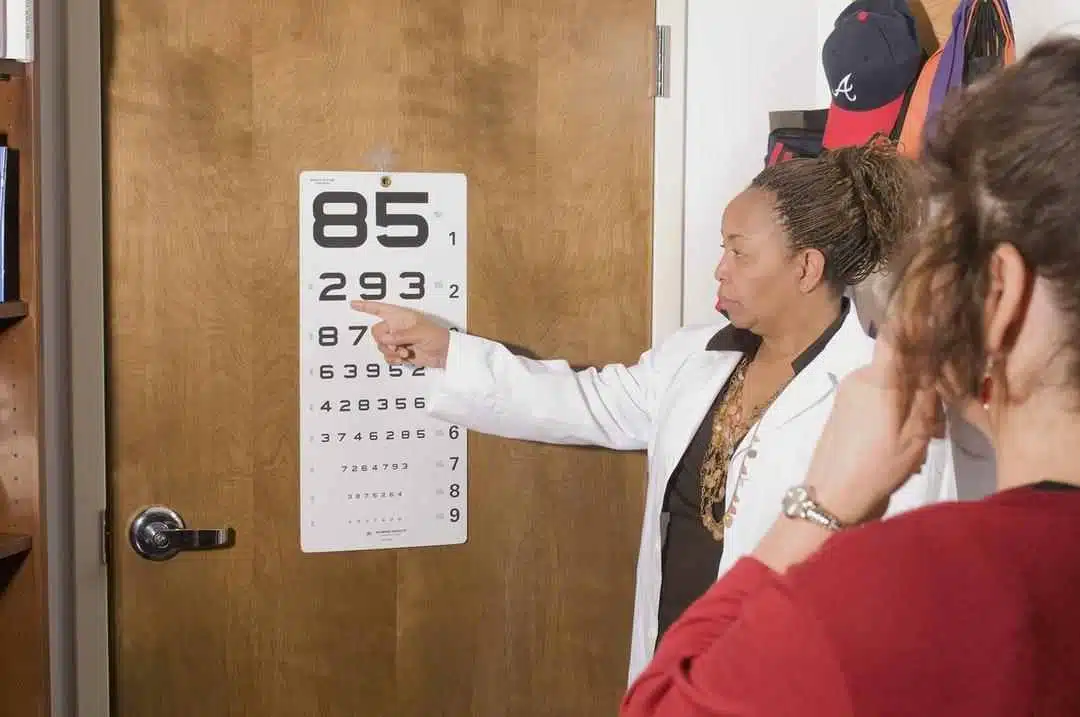Cataract surgery is a popular treatment for cataracts, a condition that clouds the eye’s lens. Early signs of cataracts include cloudy vision, difficulty seeing at night, light sensitivity, and excessive glare. Left untreated, a cataract typically worsens over time and impairs eyesight in the affected eye.
If you think you have a cataract or have been diagnosed with this condition, you probably have many questions about cataract treatment. Questions like “How long is cataract surgery?” and “How much does cataract surgery cost?”
Arming yourself with information can prepare you to get the best surgical outcome. So here are answers to 31 frequently asked questions about cataract surgery.

General Questions About Cataract Surgery
Cataract surgery can be frightening if you don’t know what to expect. The best thing you can do before your procedure is conduct research. Here are some general answers about cataract surgery.
1. How do I know if I need cataract surgery?
The severity of your cataract will determine whether or not you need cataract surgery. In the early stages of the disease, you may be able to treat your symptoms using anti-glare sunglasses, brighter lighting, and magnifying lenses.
However, more serious cases require surgical treatment. Your eye care professional will likely recommend cataract surgery if your vision loss affects your everyday life. For example, your cataract may make it difficult to drive or look at computer and TV screens.
2. How common are cataracts?
Cataracts are one of the most common vision conditions. Over 24.4 million Americans aged 40+ have cataracts.
As you age, your risk of developing cataracts increases. According to the National Eye Institute, over 50% of Americans aged 80 or older have cataracts or have had cataract surgery.
3. Is cataract surgery major surgery?
It is surgery, but it’s not considered “major” by the medical community. In most instances, cataract surgery is an outpatient procedure.
4. How do I find the right doctor for cataract surgery?
A skilled surgeon will perform your cataract surgery with compassion and efficiency. Look for these qualities when researching doctors:
- Certification. Your doctor should be certified by the American Board of Ophthalmology.
- Experience. It’s best to select a surgeon who routinely performs cataract surgeries and has a success rate of at least 90%.
- Friendliness. A clinic with caring, welcoming staff will make your cataract surgery more pleasant.
- Packages. Some surgeons offer packages for different lenses, including advanced technology lenses tailored to your vision. Medicare and some private insurance companies may not cover specialized lenses, so a package can help reduce out-of-pocket expenses.
- Technology. Look for a doctor who uses cutting-edge technologies, which can increase your chances of having a successful procedure. For instance, the Optiwave Refractive Analysis system enables doctors to take highly exact pre-operative measurements. This tool allows your surgeon to operate more precisely on your cataract.
5. What happens during cataract surgery?
Cataract surgery involves a few basic steps:
- Your eye gets numbed with ophthalmic eye drops, and the anesthetist places an IV.
- The surgeon makes a tiny, 3 mm incision in your cornea.
- The surgeon breaks up the cloudy lens using a painless, low-intensity laser beam and other tools.
- The lens is removed from your eye.
- A new intraocular (or artificial) lens is placed in your eye.
6. What are the different kinds of lenses implanted during cataract surgery?
You can choose from a variety of artificial lenses:
- A basic standard lens gives you single-focus distance vision. If you want to see near and far distances, you will also need to wear glasses.
- A multifocal lens helps you see objects at multiple distances without glasses.
- A toric lens corrects astigmatism, the term for an irregularly shaped cornea.
Your eye care professional can help you select the best lens for your lifestyle.
7. How long does cataract surgery take?
The entire process is about two and a half hours, from when patients enter the office to when they leave. The procedure itself typically takes less than 20 minutes.
8. Are you awake during cataract surgery?
Yes, patients typically stay awake during cataract surgery — but don’t worry. You won’t be able to feel or see the surgeon operating on your eye.
9. Does cataract surgery hurt?
Generally, no, cataract surgery does not hurt. In addition to receiving medication to relax you before surgery, the anesthetist will numb your eye with anesthetic eye medication before the procedure.
10. What happens if you blink during a cataract operation?
An eye holder gently keeps the lid open during the procedure to prevent blinking. Although this may sound alarming, there is usually little to no sensation from the lid holder because the eye gets numbed before its use. The eye not receiving surgery can remain open or closed during the surgery and will not affect the eye undergoing surgery.
11. What are the side effects of a cataract operation?
The most common side effect is clearer vision. Since cataracts block light, when they are removed, the eye will detect more light and could feel more sensitive. There may also be reduced pressure in the eye. You may notice more floaters, and there could be a dark crescent shape in the peripheral view, but the crescent shape usually goes away on its own in a few months.
12. How long do the results of cataract surgery last?
The lens the surgeon implants during cataract surgery is durable and will last a lifetime, according to Mayo Clinic. Sometimes, the lens capsule can become cloudy, and the National Eye Institute calls it an “after-cataract.” A laser is used to correct the cloudiness if you have an after-cataract.
13. What is the success rate of cataract surgery?
Cataract surgery has one of the highest success rates of all surgeries. The National Library of Medicine reports that this procedure improves eyesight for 95% of patients.
14. Can cataracts grow back?
No. During cataract surgery, your eye’s clouded lens is removed and replaced with an artificial lens. Cataracts cannot grow back after the natural lens has been removed and replaced with an artificial lens.

Your Vision After Cataract Surgery
When dealing with an eye ailment, your biggest concern is often if/how your vision will be affected. Cataract surgery is designed to improve your vision; however, since it is surgery, there will be some impact on your vision immediately following the procedure.
15. What will my vision be like after cataract surgery?
That depends on several factors: the size of the cataract, your overall medical health, the health of the eye, and the type of anesthesia used in the procedure. Most individuals see better within 24 hours, and sight will get progressively better within a week following surgery.
16. How long does it take for blurriness to go away after cataract surgery?
According to the American Association of Ophthalmology, blurring after cataract surgery is usually caused by swelling or edema of the cornea. If this occurs, it will resolve over time. In most cases, patients can see better within a week after surgery. You should talk to your eye doctor if your blurring persists.
17. Can cataract surgery eliminate the need for glasses?
After cataract surgery, most people will need glasses. Since surgery can change vision, your doctor will wait until your eyes completely heal before writing a new prescription, which can take up to eight weeks post-surgery.
When speaking to your doctor about cataract surgery, you may consider premium lenses that can solve vision problems — like presbyopia or astigmatism — and dramatically reduce the need for glasses.
18. How long do I need to wear dark glasses outside after cataract surgery?
Not everyone needs to wear sunglasses after cataract surgery. However, many patients find that they are more light-sensitive because more light enters the eye post-surgery. Therefore, the decision to wear sunglasses after the procedure depends on your light sensitivity. Almost all modern implants have some level of UV protection built into the lens itself, but wearing regular protective sunglasses is still recommended.
What to Expect Post-Surgery
After your cataract surgery, you will need to spend a little time recovering. Recovery from cataract surgery is generally easy. Your doctor will oversee your recovery, and your life should not be majorly impacted.
19. Can I drive after cataract surgery?
Surgery requires an anesthetic, so you must arrange a ride home following the procedure. You may be able to drive as soon as 24 hours after surgery.
20. When can I resume exercise after cataract surgery?
Your doctor may have you refrain from vigorous exercise for the first week or two after surgery. Restrict lifting or deep bending for several days after surgery, as these activities can increase eye pressure. Generally, you should refrain from lifting over 20 pounds, swimming, sitting in a spa, running, and jogging for the first week.
21. How long does it take to recover from cataract surgery?
It depends upon several factors, including cataract size and the individual’s health. Your eye may feel itchy or sore immediately after the surgery. Most discomfort should disappear after a couple of days, and complete healing may take four to six weeks.
22. How long does it take for your vision to clear after cataract surgery?
Most individuals see better within 24 hours of surgery, and sight will become progressively better within the first week.
23. Do you wear an eyepatch after cataract surgery?
Your doctor may ask you to wear an eye patch for a few days after your surgery for protection.
24. How should you sleep after cataract surgery?
Wearing a protective shield while you sleep may be recommended by your surgeon.
25. Can you watch TV after cataract surgery?
Your doctor may restrict your activity on the day of surgery to allow the eye to rest and recover. However, TV watching, reading, and other non-vigorous activities may be fine within a day or two of the procedure.
26. How do you wash your hair after cataract surgery?
It’s essential to avoid showering and washing your hair after cataract surgery. Don’t shower or wash your hair immediately following the procedure, and avoid getting water, soap, and other non-sterile matter into your eye for several days.
However, you may shower and wash your hair as soon as the day after your surgery. Just keep your eyes closed during hair and face washing to avoid getting any product in the treated eye.
27. Can you travel after cataract surgery?
Most patients can travel within one day following surgery. However, it’s a good idea to complete post-surgical follow-up appointments with the surgeon before leaving the area.
28. Can you wear makeup after cataract surgery?
Do not wear makeup around your eyes for at least a week, and consider throwing out any partially used makeup to avoid infection.
How to Pay for Cataract Surgery
If you’ve decided to treat your cataracts with surgery, the next question is how you will pay for it. The best option would be for Medicare or private insurance to pay for the procedure. Beyond insurance, doctors may work with you to establish payment plans for your portion of the expense.
29. How much does cataract surgery cost?
The cost of your cataract surgery depends on insurance, location, the type of artificial lens you select, and other factors. For instance, insurance typically doesn’t cover laser-assisted surgery, so patients must pay around $1,000 out-of-pocket per eye.
Consult with your eye care professional and your insurance company for estimates of possible costs associated with your cataract surgery.
30. Does insurance pay for cataract surgery?
Yes, but check with your insurance company to get a complete understanding of any additional costs that may not be covered. Surgery costs include fees for the surgical suite, doctor, anesthesiologist, pre-surgery tests, post-surgery drugs, and follow-up visits with your doctor.
You should be able to receive cost estimates to submit to your insurance company to find out how much they’ll pay and your portion of the expense. Premium lenses are often not covered by insurance.
31. Does Medicare pay for cataract surgery?
If you are Medicare-eligible, it will pay for most of the cost of cataract surgery with standard lenses. Supplemental insurance usually covers 80% of the portion that Medicare does not, meaning you will have to cover the unpaid charges.
Set Yourself Up For Success
Your success with cataract surgery will depend on several factors, including educating yourself and committing to follow your doctor’s instructions before, during, and after surgery. A team of highly qualified professionals, including an ophthalmologist specializing in managing visual impairments, is also essential to surgical success.
Our surgeons specialize in specific procedures like cataract surgery, know the latest medical techniques, and have access to up-to-date equipment and operative suites.
